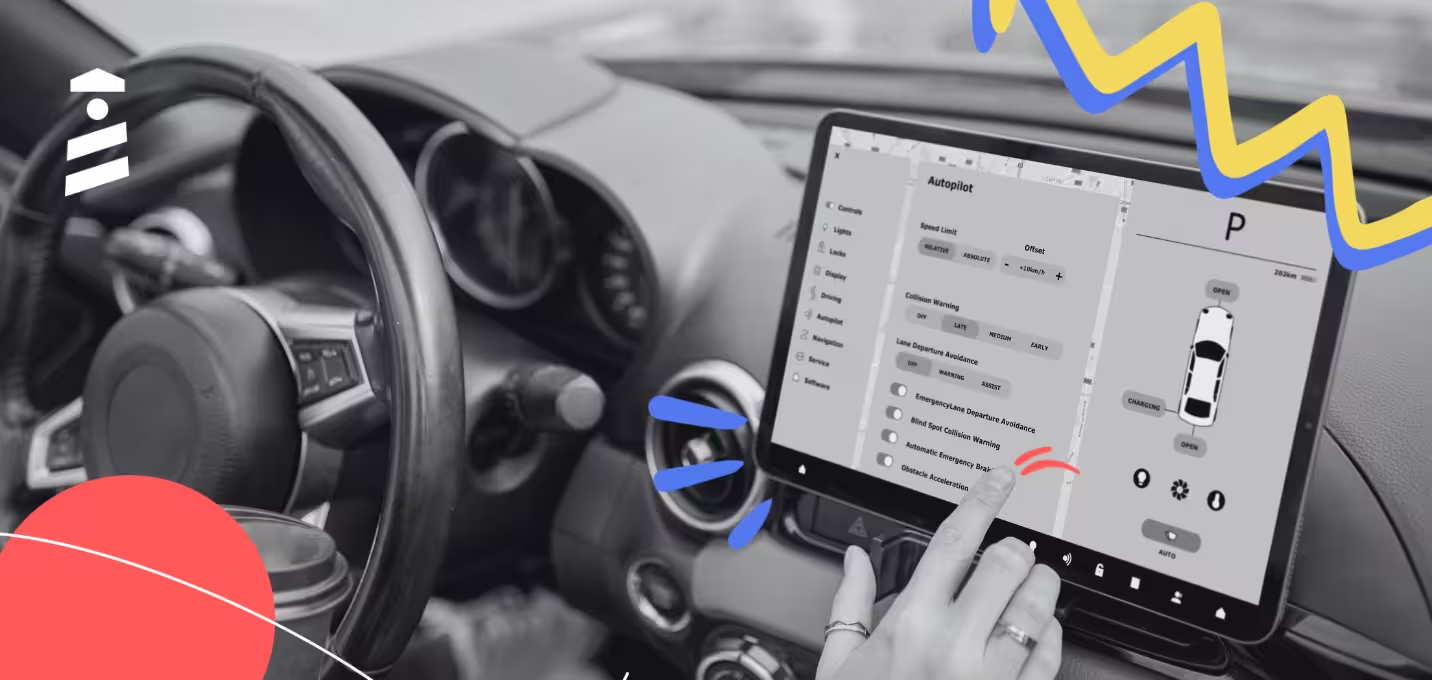

The SaaS industry is at an all-time high.
It is estimated that SaaS will have a market volume of $344 billion by 2027 and it is only natural with the involvement of AI.
So today, we are looking at
- how AI is changing SaaS,
- what it means for the SaaS industry, and
- current AI trends in SaaS right now.
Don't have the time? Here's the TL;DR ⬇️
TL;DR
- The SaaS industry is at an all-time high, with a projected market volume of $344 billion by 2027.
- AI is significantly changing the SaaS industry by driving efficiency, enhancing decision-making, and revolutionizing user experiences.
- Top SaaS companies like Salesforce, Adobe, and Microsoft integrate AI to optimize their products.
- Key AI trends in SaaS include AI-powered automation, personalized user experiences, predictive analytics, enhanced security, and conversational AI.
How is AI Changing the SaaS Industry?
According to IBM's 2022 study, 35% of businesses reported using AI, and a whopping 42% were exploring it.
And that alone shows just how much AI triggered a change in the SaaS market.
But what exactly is changing?
There are 3 aspects of the SaaS industry that are fundamentally changing and improving with AI:
Key SaaS Changes Driven By AI
Efficiency in Workflows
When it first became available to all, and even before that, AI had a main goal of higher efficiency, and that meant automation.
Currently, AI is driving automation across various SaaS functionalities.
From automating customer support through chatbots to streamlining business processes with AI-driven workflows, operational efficiency has never been higher.
The beauty of automation is that it
- reduces the need for manual intervention,
- minimizes errors, and
- speeds up processes.
This allows businesses to focus on strategic tasks rather than routine operations.
Decision-Making on All Levels
With analytics changing with AI, decision-making took a different but surely more efficient shape.
Predictive analytics tools can forecast trends, customer behavior, and market dynamics by analyzing historical data and identifying patterns.
And it is better than ever now, thanks to AI.
This predictive capability aids businesses in
- making informed decisions,
- optimizing strategies, and
- proactively addressing potential challenges.
User Experience Revolution
Another aspect of SaaS that is currently going through a change right now is how personalization and user experiences are designed.
Today, AI enables SaaS providers to offer highly personalized experiences to users.
By analyzing user data and behavior, AI algorithms can tailor recommendations, customize interfaces, and provide relevant content. This makes the software more intuitive and user-friendly.
Top SaaS Companies Already Using AI
Most big companies use AI, one way or the other.
They use it for automation or analytics, and in the worst-case scenario, they use conversational AI.
But there are also those who use AI as a part of their product.
Here's what the biggest SaaS companies are doing with AI:
1- Salesforce: Einstein AI

Salesforce stands at the top of the SaaS market with a huge market presence and net worth, and naturally, they use AI inside their product.
Einstein AI offers advanced analytics, predictive insights, and automation features to make the lives of Salesforce users easier.
It mainly helps sales teams by
- identifying potential leads,
- forecasting sales, and
- providing personalized customer experiences.
2- Adobe: Sensei

Adobe is another long-standing behemoth, and its AI platform, Sensei, proves that they are willing to keep up with the game.
Sensei is essentially a simple tool that enhances creative workflows and marketing automation. It also offers intelligent tools for image editing, video production, and content management.
Its selling point really boils down to its qualities that improve creativity.
3- Microsoft: Azure AI

Azure AI is sort of a meta solution since it helps businesses and developers build, deploy, and manage AI solutions. It aims to offer the best of both worlds with machine learning, conversational AI, knowledge mining, and more.
Now, all these big SaaS companies are working to make AI work for them, but where do you start?
Latest Trends of Artificial Intelligence in the SaaS Industry
AI's inclusion in our lives might have been new, but it sure has evolved rapidly in the meantime.
Today, there are many different AI trends and developments that are relevant to SaaS and how it will evolve alongside AI in the coming years.
Here are the top 5 trends in AI for you:
1. AI-Powered Automation
AI-powered automation is likely the most efficient trend for SaaS businesses since it decreases human effort while effectively increasing results.
This trend is all about using advanced algorithms and machine learning to automate complex and repetitive tasks that were traditionally time-consuming for humans.
This automation development is currently reducing operational costs and increasing efficiency for SaaS businesses.
A good example is Automation Anywhere, which utilizes AI and RPA to automate complex workflows, such as the end-to-end processing of insurance claims.

The platform integrates machine learning models to extract information from unstructured data, like emails and scanned documents.
And naturally, it enhances automation beyond simple rule-based tasks.
2. Personalized User Experiences
Personalization is currently undergoing new levels of efficiency thanks to AI developments in user experience.
Using machine learning algorithms to analyze user behavior and preferences, AI is the most adept it has ever been in tailoring experiences for each individual user.
This matters for many reasons, but the importance of engagement in SaaS makes it especially important that personalized user experiences are systematized.
A user is always more likely to stay loyal when personalization is at work, and AI makes it possible that that is always the case.
Segment is a good example when it comes to utilizing AI for better user experiences.
With AI, the platform helps SaaS companies create personalized content, product recommendations, and communication strategies.

3. Predictive Analytics and Insights
Predictive analytics is yet another advancement that SaaS businesses can easily benefit from on a day-to-day basis.
The principle is quite simple with this one: predictive analytics uses AI to analyze historical data and make predictions about future outcomes, trends, and behaviors.
This enables businesses to make informed, data-driven decisions, optimize their strategies, and anticipate market trends and customer needs.
And all that results in better performance and competitive advantage.
Google Cloud's Looker Studio is a great example here. It integrates AI for predictive analytics, enabling businesses to forecast sales trends, predict customer churn, and optimize operations.

Its integration with BigQuery ML also allows for the building and deploying of machine learning models directly within the platform.
4. Enhanced Security and Fraud Detection
SaaS isn't all about the offense play; sometimes, you have to play defense as well.
And for that, AI is there for you as well.
AI enhances cybersecurity by identifying and responding to threats in real-time by using machine learning to detect fraud and cyber-attack patterns.
Since cyber threats get more and more sophisticated every day, AI-driven security measures are important to consider.
Sift Science can be mentioned here as a good example.

They use machine learning to detect and prevent fraudulent activities in real time by analyzing billions of data points across multiple channels.
Because of its continuous learning approach, it can swiftly adapt to new threats and keeps SaaS platforms better secured each day.
5. Natural Language Processing (NLP) and Conversational AI
Lastly, a familiar trend keeps trending: conversational AI has been a part of our lives for a while, and it will potentially stay with us.
NLP and conversational AI use algorithms to understand and respond to human language, which enables more natural and intuitive user interactions.
And that has been helping SaaS in many ways.
By providing better customer support and improving user engagement through more intuitive communication interfaces, these technologies enhance the usability and accessibility of SaaS applications.
Another Google Cloud tool, Dialogflow, is a good example here.

Dialogflow allows developers to create sophisticated conversational interfaces using NLP, which enables SaaS applications to understand and respond to user queries in natural language.
Consequently, this improves customer support and overall user experience.
Final Thoughts
SaaS is going nowhere; neither is AI.
And with the latest impact of AI on SaaS, it seems that AI will bring about the most effective and productive SaaS market we've seen in years.
One of the main things SaaS businesses need to be the best in their game is to keep up with AI trends.
Now that isn't easy, but it yields results in the long run.
Good luck in advance 🍀
Frequently Asked Questions
How is AI revolutionizing the SaaS industry?
AI has transformed the SaaS industry trends as it improves the productivity of customers, personalization of customer experiences, and efficiency of enterprise operations. It also facilitates the identification of data and predictive capabilities to improve firms' decision-making processes and outcomes. By incorporating AI, SaaS gains a competitive advantage in the market as it increases the efficiency and intelligence of the SaaS platform.
What is AI-based SaaS?
Systems that incorporate AI as a technique to develop the platform as an intelligent system are referred to as AI-based SaaS. This involves developing the SAAS application using AI in key areas such as automation, security, data analytics, and especially customer service. Improved customer experiences and optimization of the efficiency of businesses are some of the benefits that businesses gain from the use of AI B2B SaaS
How big is the AI SaaS market?
The market for AI software as a service is enormous, expanding quickly, and valued at billions of dollars. The adoption of AI technologies presents SaaS companies with enormous growth opportunities. The drive for organizations to become more efficient and competitive is driving up demand for AI SaaS solutions. This suggests that in the upcoming years, the AI SaaS industry will continue to expand.
How does generative AI affect SaaS?
By creating creative solutions and business models, generative AI is revolutionizing the SaaS sector. By offering original and inventive solutions, productive AI makes SaaS systems more successful and efficient. Providing companies with greater growth opportunities and a competitive edge, AI transforms the SaaS sector.















.svg)
.svg)
.svg)
.svg)
.svg)











.svg)
.svg)




.png)
















